Always be mindful of what you write or let others write for you. You never know when it will be scrutinized by thousands upon thousands of Japanese people.
translation (Page 2)
Finally! You no longer have to let language barriers keep you from lying to random girls you meet on the street of a foreign land.
With its brushstroke-style Japanese text, this T-shirt might look cool, but it’s literally ridiculous.
Every country has its own set of rules and customs that visitors may not initially be aware of. To meet the demands of the growing tourism industry, many governments have opted to implement multi-lingual signs and websites. Sometimes, however, the translations cause much more confusion than they prevent, like with this list of jobs foreigners aren’t allowed to do in Thailand.
Recently a similar goof occurred in India, this time due to some curiously mistranslated signage posted inside the Chennai International Airport, leaving visitors both amused and confused.
Media in Japan, us included, have been all over Taco Bell’s return to the country this week, but talk hasn’t been entirely of tacos. The Taco Bell Japan website was also making news when Japanese speakers noticed it had some pretty terrible and funny English-to-Japanese translations.
Back in 2012 when a bunch of 4chan members released a visual novel game based around romantically pursuing disabled high school girls, expectations were low to say the least. But to the shock of the internet, the game received widespread acclaim for its impressive visuals, story, and music, not to mention its sympathetic treatment of its characters.
However, despite being a game in a distinctly Japanese genre and taking place in a Japanese high school with Japanese characters, the game was originally written and released in English. It’s only now, three years later, that Katawa Shoujo (“Disabled Girls”) has finally been released in the language many people thought it was originally created in: Japanese.
In an effort to make facilities foreigner-friendly or simply to enhance the style of an advertisement Asian governments and businesses will often add English translations. However, many don’t feel it’s worth the effort to do a proper translation and simply rely on automatic ones. The results are often sure to put a smile on the face of English speakers in the rest of the world.
Now, Xi’an North Station has put another feather in the cap of gloriously wrong translations…and this time they called it macaroni.
With their complex writing systems, getting around in Japan or China can be stressful for even the most seasoned of tourists. Sure, you could carry a travel dictionary in your pocket while you go sightseeing, but how are you supposed to look up all those funny looking sticks and squiggles when you don’t even know how to pronounce them? Often the locals try to be helpful by providing an English translation, but there are reasons why that doesn’t always work out. If only there was a way to just wave your magic smartphone over some unintelligible text and have it provide a reliable translation on the spot. Well, as we discovered over at Shanghai List, there’s an app for that.
As anyone who has studied Japanese for any length of time will tell you, leaning lists of vocabulary can be tough. On some occasions, the very first time you’ll meet a word will be on paper; some abstract or complex term that’s almost impossible to remember as it’s so rarely used in the real world. Other times, you’ll have heard–or perhaps even used a word yourself–in conversation, but when encountering it on paper for the first time it may appear completely alien due to the characters with which it’s written.
Thankfully, though, since kanji characters are based on meaning rather than speech sounds, it can be easy to decipher a written word even if you’re still not sure how to pronounce it. But sometimes, translating a word too literally can land you in all kinds of trouble, or at the very least leave you chuckling to yourself while native Japanese speakers are left wondering what’s so funny…
Regular RocketNews24 readers will know doubt have seen our articles documenting some of Japan’s weirder translations of Western movie titles (Malkovich’s Hole, anyone?), or perhaps caught our collection of English movie posters remade using their Japanese titles. But today’s list of 10 adapted movie titles was nominated by none other than Japanese movie watchers themselves, who felt that the new names their country had given to these feature films were actually pretty cool.
Let’s take a little look, shall we?
Translation apps are very popular for people visiting foreign lands. With only internet access and a tap of the finger you can convey “I swallowed a june bug” in any number of languages like Spanish (Me tragué un error junio) and Hatian Creole (Mwen vale yon ensèk mwa Jen). I’m pretty sure those are both wrong, but still better than I could do by myself with no knowledge of either language.
Now Yamaha has brought the translation app beyond the boundaries of humanity and into the realm of the machine with their engine revving translation app, RevTranslator. As the name suggests, this app will listen to an engine and deliver its message in Japanese.
Jiro Kuwata‘s 1960s Batman manga series will get a complete English release for the first time in both digital and print formats this year. DC Comics will first release a new chapter online each week beginning on Saturday. DC will then publish the complete run by the 8 Man manga artist in three volumes later this year. The manga will appear in its original right-to-left format.
When traveling abroad it’s always advised that you look into the country’s rules and regulations before departing. You never know what activity, considered perfectly acceptable in your homeland, might turn out to be taboo or even a crime in another.
So it’s nice when your hotel sends you a “Warm Notice” like the Star Hotel in China had, which outlines what you may and may not do in your room. The note is dated from 2013 but it was recently posted on Imgur where it gained a lot of attention for it’s simple but important message…
Google Translate, the tech giant’s online language translation service, is not always perfect (for example, translating “twenty” from English to Japanese gives us “20”), but it’s a nice, not to mention free, tool that’s available to anyone with an internet connection. Aside from being very useful, the site is also entertaining with plenty of funny tricks to be found, like how to make Google Translate beatbox.
Here’s another trick to add to the list! Just translate a bunch of dots into Japanese and you’ll be treated to a hilarious, and somewhat melodic, interpretation of those little round symbols that perch at the end of our sentences.
The Chinese language is widely regarded as one of the most difficult languages to learn.
There are more than 80,000 Chinese characters in existence, although a non-native speaker can get by with 1,000 of the most frequently used.
To make matters more complicated, the characters that make up each word or phrase individually carry different meanings based on the context in which they’re used. For example, the Chinese character 吃 could mean “eat,” “drink,” “bear,” or “take,” depending on the phrase that surrounds it.
As hard as the language is, it can also be incredibly poetic when translated character by character into English, and sometimes hilarious.
Hollywood films are popular around the world and Japan gets its fair share of dubbed and subtitled blockbusters. But sometimes things get a little mixed up when changing words from English to Japanese. This gives rise to translated titles that come in a wide range of strange from unintended sexual innuendos to spoilertastic summaries.
Let’s take a look at 13 weird Japanese movie titles that make you wonder what the translators were thinking.
Although major cities in Japan have installed signs in both Japanese and English, many foreign travelers still face difficulties reading the text found on things like menus, product packages, and billboards. That may all change thanks to NTT DoCoMo, Japan’s largest mobile phone operator, and their new glasses that are capable of almost instantly translating Japanese text.
As anyone who has ever taught or studied a second language will tell you, online translation software simply don’t work. Sure, you can throw in short phrases or key words and it’ll help you out from time to time, and languages that are grammatically similar escape more-or-less unscathed, but the rest of the time the sentences these programs spit out is absolute garbage.
With a keen eye for humour, online hub and original content creators Smosh put together the following hilarious video, ‘Japanese Titanic‘. The script is made up entirely of lines generated by an online translator after turning the original English into Japanese and back again, making this easily one of the funniest videos we’ve seen in weeks.
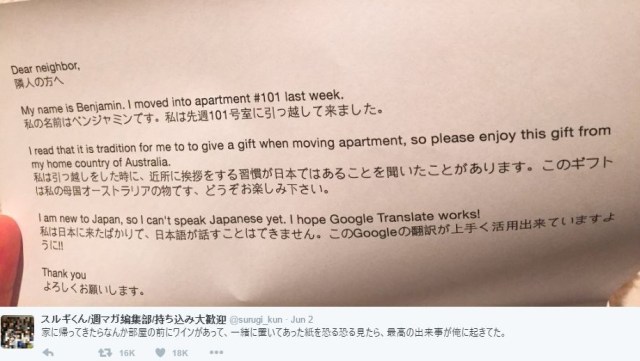

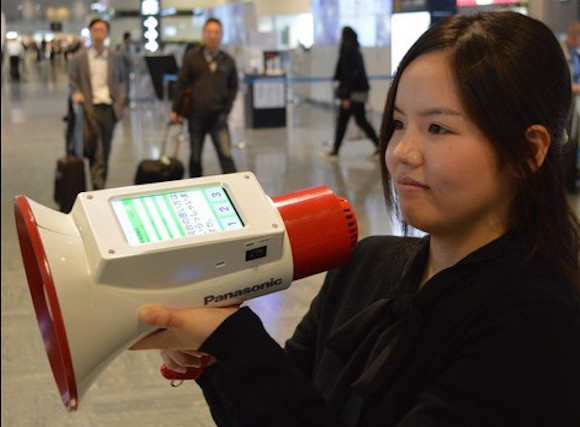
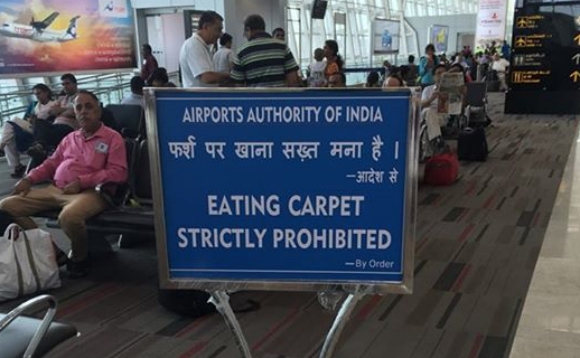
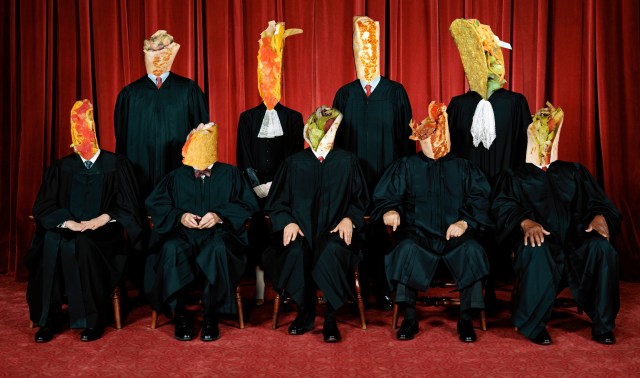

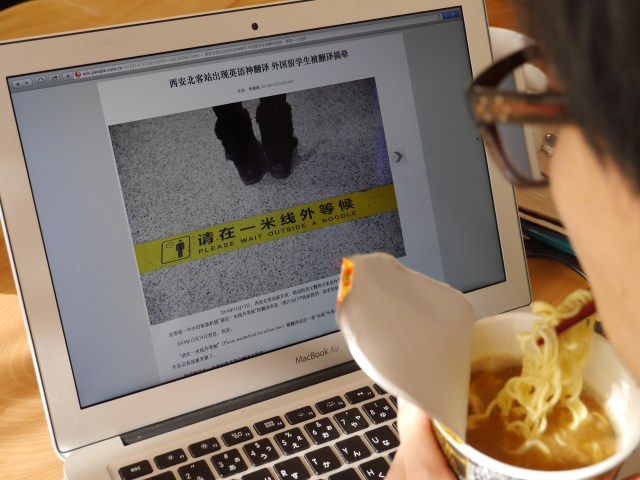
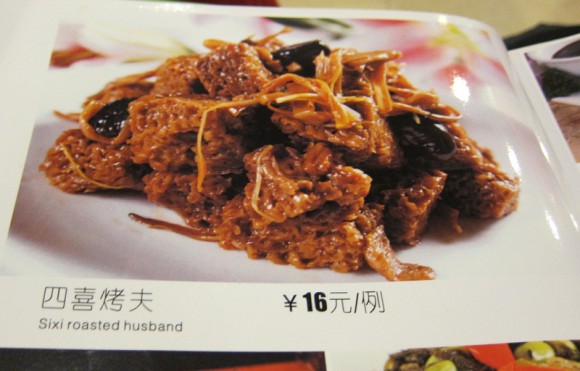

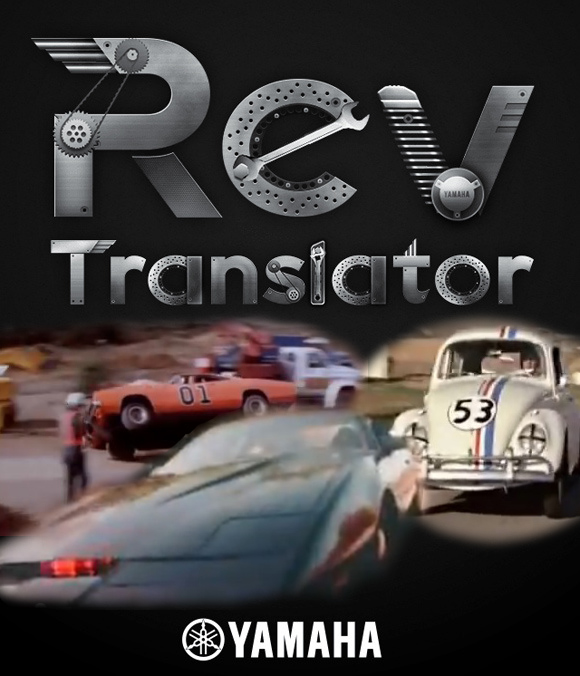
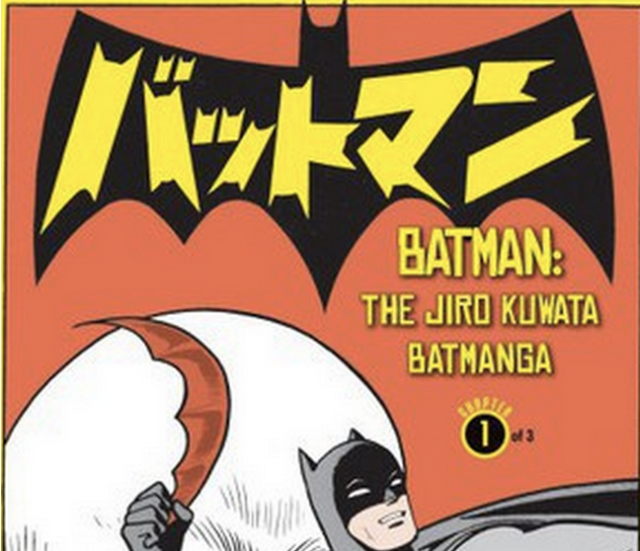
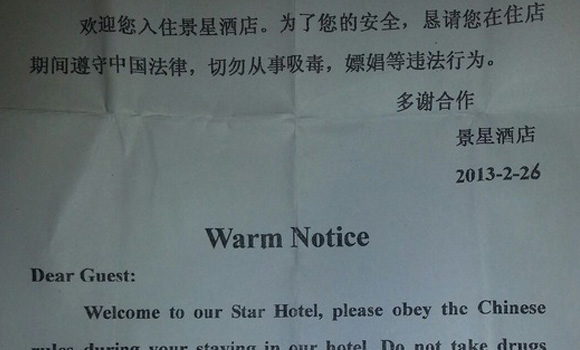
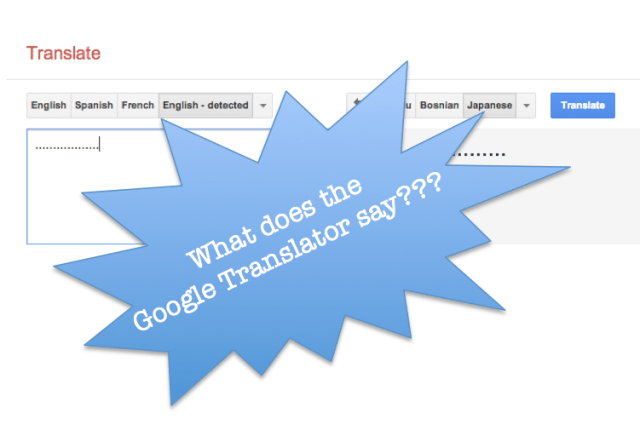
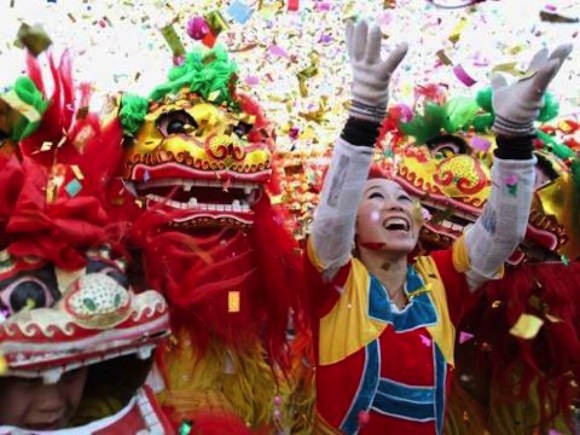
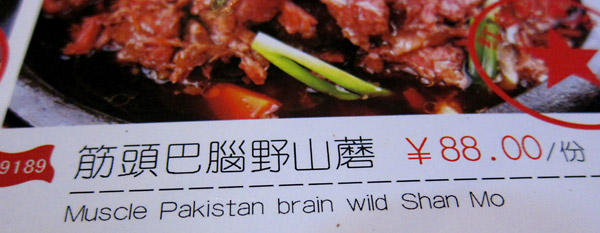
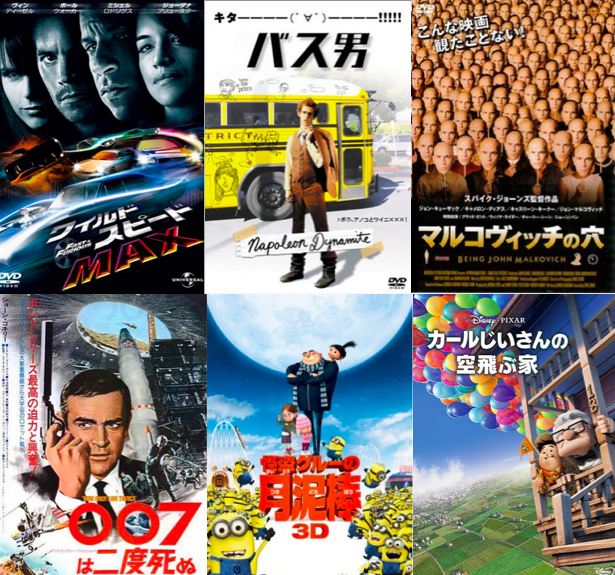

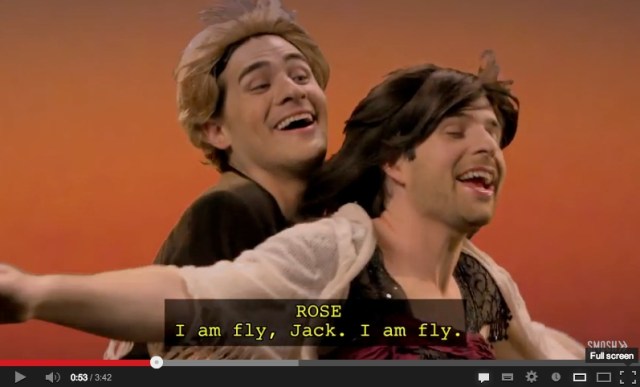
 Starbucks Japan unveils new sakura cherry blossom collection for hanami season 2026
Starbucks Japan unveils new sakura cherry blossom collection for hanami season 2026 Is Tokyo Station’s startlingly expensive wagyu bento boxed lunch worth its high price?[Taste test]
Is Tokyo Station’s startlingly expensive wagyu bento boxed lunch worth its high price?[Taste test] Sakura Festival in Chiyoda mixes illuminations, boats, music, and Rilakkuma in the heart of Tokyo
Sakura Festival in Chiyoda mixes illuminations, boats, music, and Rilakkuma in the heart of Tokyo One Piece creator has hidden secret of anime treasure’s identity in chest at bottom of real-world ocean
One Piece creator has hidden secret of anime treasure’s identity in chest at bottom of real-world ocean Cute coffins now available at Tokyo’s coffin relaxation salon[Photos]
Cute coffins now available at Tokyo’s coffin relaxation salon[Photos] Live-action One Piece’s Luffy teaches Sesame Street’s Elmo a Japanese word for friendship[Video]
Live-action One Piece’s Luffy teaches Sesame Street’s Elmo a Japanese word for friendship[Video] Japanese shiitake mushroom snacks from Don Quijote, created for people who don’t like mushrooms
Japanese shiitake mushroom snacks from Don Quijote, created for people who don’t like mushrooms Food Becomes Art: These Metal Gear and Final Fantasy Bentō Lunchboxes Will Blow Your Mind
Food Becomes Art: These Metal Gear and Final Fantasy Bentō Lunchboxes Will Blow Your Mind Viral Japanese cheesecake from Osaka has a lesser known rival called Aunt Wanda
Viral Japanese cheesecake from Osaka has a lesser known rival called Aunt Wanda World’s oldest kendo video is part martial arts, part Buster Keaton, all amazing
World’s oldest kendo video is part martial arts, part Buster Keaton, all amazing Starbucks Japan releases first-ever Hinamatsuri Girls’ Day Frappuccino
Starbucks Japan releases first-ever Hinamatsuri Girls’ Day Frappuccino Japanese restaurant chain serves Dragon Ball donuts and Senzu Beans this spring
Japanese restaurant chain serves Dragon Ball donuts and Senzu Beans this spring Japan Extreme Budget Travel! A trip from Tokyo to Izumo for just 30,000 yen [Part 1]
Japan Extreme Budget Travel! A trip from Tokyo to Izumo for just 30,000 yen [Part 1] Japan’s craziest burger chain takes menchi katsu to new extreme levels
Japan’s craziest burger chain takes menchi katsu to new extreme levels Japan Extreme Budget Travel! A trip from Tokyo to Izumo for just 30,000 yen [Part 2]
Japan Extreme Budget Travel! A trip from Tokyo to Izumo for just 30,000 yen [Part 2] Japanese drugstore sells onigiri at pre-stupid era prices, but how do they compare to 7-Eleven?
Japanese drugstore sells onigiri at pre-stupid era prices, but how do they compare to 7-Eleven? Lawson adds doughnuts to its convenience store sweets range, but are they good enough to go viral?
Lawson adds doughnuts to its convenience store sweets range, but are they good enough to go viral? Japan’s newest Shinkansen has no seats…or passengers [Video]
Japan’s newest Shinkansen has no seats…or passengers [Video] Starbucks Japan releases new sakura goods and drinkware for cherry blossom season 2026
Starbucks Japan releases new sakura goods and drinkware for cherry blossom season 2026 Foreigners accounting for over 80 percent of off-course skiers needing rescue in Japan’s Hokkaido
Foreigners accounting for over 80 percent of off-course skiers needing rescue in Japan’s Hokkaido Super-salty pizza sends six kids to the hospital in Japan, linguistics blamed
Super-salty pizza sends six kids to the hospital in Japan, linguistics blamed Starbucks Japan unveils new sakura Frappuccino for cherry blossom season 2026
Starbucks Japan unveils new sakura Frappuccino for cherry blossom season 2026 Foreign tourists in Japan will get free Shinkansen tickets to promote regional tourism
Foreign tourists in Japan will get free Shinkansen tickets to promote regional tourism The 10 most annoying things foreign tourists do on Japanese trains, according to locals
The 10 most annoying things foreign tourists do on Japanese trains, according to locals Take a trip to Japan’s Dododo Land, the most irritating place on Earth
Take a trip to Japan’s Dododo Land, the most irritating place on Earth Naruto and Converse team up for new line of shinobi sneakers[Photos]
Naruto and Converse team up for new line of shinobi sneakers[Photos] Survey asks foreign tourists what bothered them in Japan, more than half gave same answer
Survey asks foreign tourists what bothered them in Japan, more than half gave same answer Japan’s human washing machines will go on sale to general public, demos to be held in Tokyo
Japan’s human washing machines will go on sale to general public, demos to be held in Tokyo Starbucks Japan releases new drinkware and goods for Valentine’s Day
Starbucks Japan releases new drinkware and goods for Valentine’s Day We deeply regret going into this tunnel on our walk in the mountains of Japan
We deeply regret going into this tunnel on our walk in the mountains of Japan Studio Ghibli releases Kodama forest spirits from Princess Mononoke to light up your home
Studio Ghibli releases Kodama forest spirits from Princess Mononoke to light up your home Major Japanese hotel chain says reservations via overseas booking sites may not be valid
Major Japanese hotel chain says reservations via overseas booking sites may not be valid Put sesame oil in your coffee? Japanese maker says it’s the best way to start your day【Taste test】
Put sesame oil in your coffee? Japanese maker says it’s the best way to start your day【Taste test】 No more using real katana for tourism activities, Japan’s National Police Agency says
No more using real katana for tourism activities, Japan’s National Police Agency says Live-action One Piece’s Luffy teaches Sesame Street’s Elmo a Japanese word for friendship[Video]
Live-action One Piece’s Luffy teaches Sesame Street’s Elmo a Japanese word for friendship[Video] Japanese shiitake mushroom snacks from Don Quijote, created for people who don’t like mushrooms
Japanese shiitake mushroom snacks from Don Quijote, created for people who don’t like mushrooms Food Becomes Art: These Metal Gear and Final Fantasy Bentō Lunchboxes Will Blow Your Mind
Food Becomes Art: These Metal Gear and Final Fantasy Bentō Lunchboxes Will Blow Your Mind Viral Japanese cheesecake from Osaka has a lesser known rival called Aunt Wanda
Viral Japanese cheesecake from Osaka has a lesser known rival called Aunt Wanda World’s oldest kendo video is part martial arts, part Buster Keaton, all amazing
World’s oldest kendo video is part martial arts, part Buster Keaton, all amazing Tokyo Station staff share their top 10 favorite ekiben
Tokyo Station staff share their top 10 favorite ekiben Is Oni Koroshi sake in a drink box wino fuel or a hidden gem?
Is Oni Koroshi sake in a drink box wino fuel or a hidden gem? Can one man blow 10,000 yen at Tokyo’s cheapest Italian restaurant? The human otter finds out
Can one man blow 10,000 yen at Tokyo’s cheapest Italian restaurant? The human otter finds out Chance to play Tetris on a massive staircase in Kyoto Station coming in March
Chance to play Tetris on a massive staircase in Kyoto Station coming in March Kyoto planning surprise late-night inspections of Airbnb-style rentals to fight overtourism
Kyoto planning surprise late-night inspections of Airbnb-style rentals to fight overtourism What’s in a Lawson fukubukuro lucky bag?
What’s in a Lawson fukubukuro lucky bag? Love yakiniku but dining solo? Here’s what it’s like to eat alone at Yakiniku Like
Love yakiniku but dining solo? Here’s what it’s like to eat alone at Yakiniku Like Top 5 Super Nintendo World souvenirs for winter 2021 according to staff
Top 5 Super Nintendo World souvenirs for winter 2021 according to staff Majority of Japanese mayors say foreign residents are essential but most see good and bad effects
Majority of Japanese mayors say foreign residents are essential but most see good and bad effects